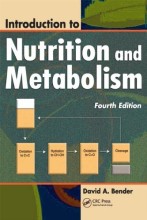Psychobiology of Food Choice and Eating Behaviour - Emotions, food choice and eating behaviour
9 important questions on Psychobiology of Food Choice and Eating Behaviour - Emotions, food choice and eating behaviour
Why study emotions and food?
- Emotions are omnipresent, also in food appraisal
- many products taste good, have good nutrient quality, similar utilitarian product attributes and benefits
- product may distinguish itself on emotional properties -> try to communicate an emotion with a product -> e.g., CocaCola Happiness
How to measure emotions?
- explicit vs implicit
- verbal vs non-verbal
- physiological changes > experienced emotion > behaviour
There are psychological methods and physiological methods:
What are some often used questionnaired with emotions/mood?
- Profile of mood state (POMS); 65 adjectives.
- to diagnose people with mood disorders
- focus on negative emotions: tension, depression, anger, fatigue, confusion, vigour
- Multiple Affective Check List (MAACL); 66 adjectives
- also focuses on negative
- anxiety, depression, hostility, ssensation seeking, positive affects
>> not very helpful for food related research, since you have not much negative feelings towards food
- Higher grades + faster learning
- Never study anything twice
- 100% sure, 100% understanding
What about emotions related to food?
- Basic emotions > generally negative (angry, fear, sad)
- discrete emotions > many do not seem to be relevant for food
- POMS, MAACL > generally negative
- is this useful? No
What are Temporal Dynamics of Emotions (TDE)?
- challenge: static instruments result in "snapshots"
How to measure emotions by observations behaviour?
- Monitoring facial expressions
- Self-Assessment Manikin (SAM)
- PrEmo
- non-verbal
- culture-independent
- mixed emotions
Food -> mood
Changes in appetite
Food -> mood
Sensory effects
Sweet tastes influence mood by activating neural substrates of reward in the brain.
Endogenous opiods (endorphins) are released during stress and alleviate pain
Food -> mood
Sensory effects + cognitive expectations
- perceived sweetness of a 0 energy drink was correlated with changes in plasma glucose levels
- intensity of negative mood after eating energy dense foods in small amounts was stronger in obese than in non-obese subjects
The question on the page originate from the summary of the following study material:
- A unique study and practice tool
- Never study anything twice again
- Get the grades you hope for
- 100% sure, 100% understanding





























